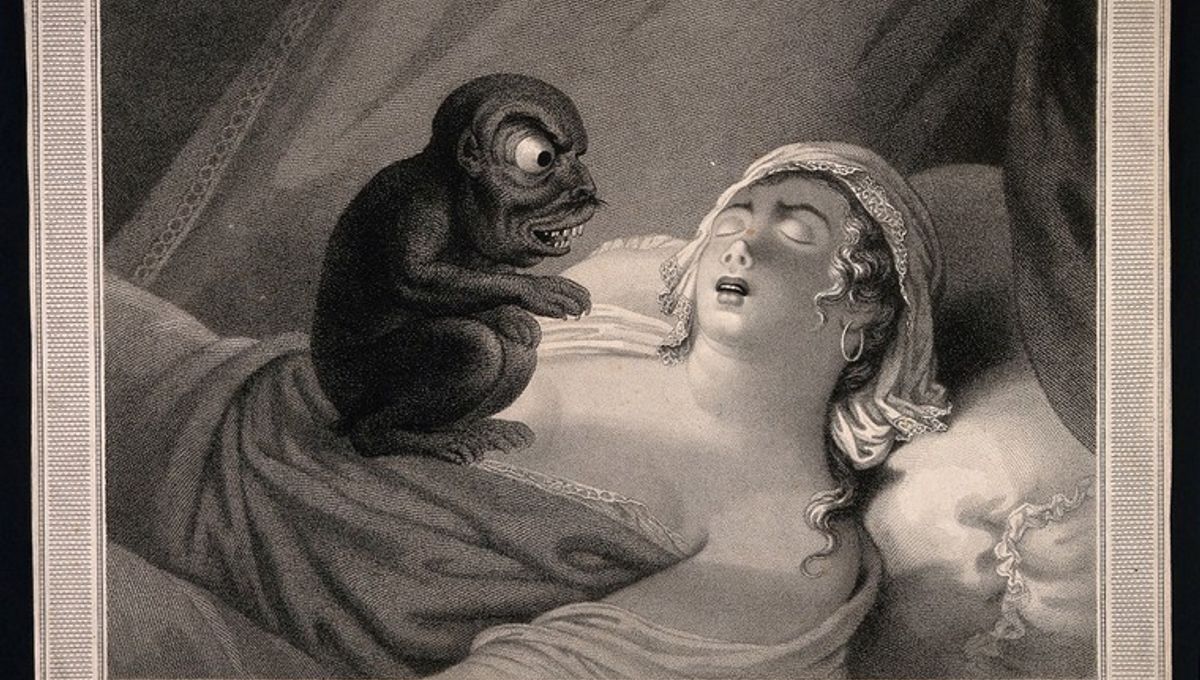
The dark dreams that haunt your nights may be leaving a deeper imprint on your life.
Scientists at the UK Dementia Research Institute and Imperial College London analyzed data from 183,012 adults aged 26 to 86, as well as 2,429 children aged 8 to 10, collected from six long-term health studies.
At the start of the study, adults reported how often they had nightmares, then researchers tracked them for up to 19 years. For children, it was their parents who shared how frequently nightmares occurred. To measure biological aging, scientists looked at the length of children’s telomeres, tiny DNA caps that reveal how fast cells are aging. In adults, they went a step further, using both telomere length and cutting-edge epigenetic clocks to gauge how quickly the entire body was aging.
Presenting the findings at the European Academy of Neurology Congress 2025 on Monday, June 23, the results uncovered a startling link between frequent bad dreams and biological aging.
The researchers found that people who have weekly nightmares were more than three times as likely to die prematurely (before age 70) compared to those who rarely or never experienced nightmares. However, even people who experienced monthly nightmares underwent faster aging and increased mortality compared to those who did not tend to have nightmares.
The link between weekly bad dreams and early death was so strong that it was a more accurate predictor of premature death than other well-known risk factors, including smoking, obesity, poor diet, and low physical activity.
The researchers estimated that around 40 percent of the increased mortality risk was directly tied to faster biological aging, which was found in both children and adults who experienced nightmares on a weekly or daily basis.
The broader connection between sleep quality and aging is well-established – it’s safe to say that sleepless nights aren’t going to do any favours for your health. Nightmares are a key part of that equation, acting as a good indicator of both sleep quality and overall well-being.
However, the relationships are complex. Disrupted sleep from nightmares can lead to physical health problems, while some physical health conditions can also trigger nightmares. But to put it simply, if you’re spending your nights in a cold sweat, tossing and turning with a racing heart, your body isn’t getting the downtime it needs to rest, recover, and repair.
“Our sleeping brains cannot distinguish dreams from reality. That’s why nightmares often wake us up sweating, gasping for breath, and with our hearts pounding – because our fight-or-flight response has been triggered. This stress reaction can be even more intense than anything we experience while awake,” Dr Abidemi Otaiku, a medical doctor and neuroscientist at Imperial College London, said in a statement sent to IFLScience.
“Nightmares lead to prolonged elevations of cortisol, a stress hormone closely linked to faster cellular ageing. For those who frequently experience nightmares, this cumulative stress may significantly impact the ageing process. Additionally, nightmares disrupt both sleep quality and duration, impairing the body’s essential overnight cellular restoration and repair. The combined effects of chronic stress and disrupted sleep likely contribute to the accelerated ageing of our cells and bodies,” he added.
The findings could have meaningful implications for public health. Dr Otaiku argues that his research suggests addressing nightmares may offer a low-cost, high-impact strategy for improving overall health and potentially slowing biological aging.
“The good news is that nightmares can be prevented and treated. Simple measures like avoiding scary movies, maintaining good sleep hygiene, managing stress, and seeking treatment for anxiety or depression can be effective,” explained Dr Otaiku.
“Given how common and modifiable nightmares are, they should be taken far more seriously as a public health concern. If further studies confirm the causal impact of nightmares on ageing and brain health, then preventing and treating them could become one of the simplest, most cost-effective strategies to slow ageing at a population level,” he added.
Source Link: Frequent Nightmares Are A Worrying Sign Of Early Death And Accelerated Aging, Says New Study